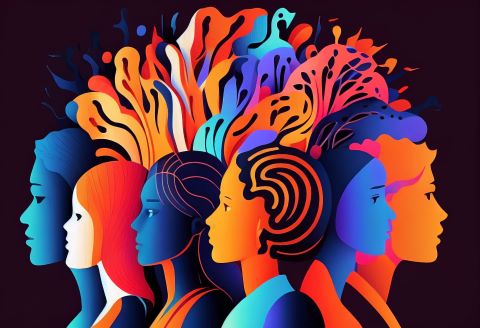Finding the right job is hard. Finding a job sympathetic to your neurodiverse strengths and challenges can be more difficult.
The Center for Career and Professional Development will share tips and resources for job-searching with neurodiversity on Sept. 19 at the Career Studio in the Reid 150 starting at 4 p.m.
This is a two-part event, but the second part will be focusing on interviewing tips for neurodiverse populations on Nov. 24 at 4 p.m.
Neurodiversity refers to the many variations of human brain function, including conditions like autism, ADHD, OCD, etc. According to the Journal of Adult Development, to many, neurodiversity is not a disability but a characteristic that may lead to disadvantages when the environment is not adapted. In a LinkedIn post, organizational psychologist Dr. Tiffany Jameson said that neurodiverse individuals face unique challenges in the employment process despite being qualified for the position.
Society and many organizations impose an identity of disability or “special needs” on neurodiverse people. Condescending views like these overlook the deserving place neurodiverse people have in the workplace based on their contributions. Because of these societal expectations, some hide their neurodiversity by masking certain behaviors, often putting a strain on themselves. For example, the National Autistic Society lists “stimming,” a repetitive body movement or noise that one finds soothing, as a behavior often masked for fear of seeming strange to others. Further, some may avoid disclosing their conditions altogether to avoid stigma. Research from North Carolina State University estimates that 86% of people with autism are unemployed or underemployed, settling for jobs they are overqualified for.

In the CCPD’s workshop, Carrie Hachadurian, Associate Director for Career-Integrated Learning, will help neurodiverse applicants identify their strengths and explore resources for neurodivergent talent. Hachadourian does not claim to be an expert psychologist but does have ample experience assisting students with differing needs, skills, and interests through working with CCPD for over a decade.
Hachadurian, a person with ADHD, will pull from her experience to address communication issues in non-adapted environments and strategies to overcome them.
Additionally, Hachadurian will share research tips and networking strategies for finding employers who have adapted their work environments to be inclusive to the neurodiverse. An example she shared was Linc-it, an employment program “created to provide employment experience, paid internships, or on-the-job training for students and professionals with autism, as well as to provide employers with a pipeline of excellent talent often missed during conventional recruitment processes.” Attending the event can benefit anyone regardless of neurological state because when we understand and acknowledge the needs of others, we can create higher-functioning work, social, and learning environments. If you plan to attend the event, RSVP here.


